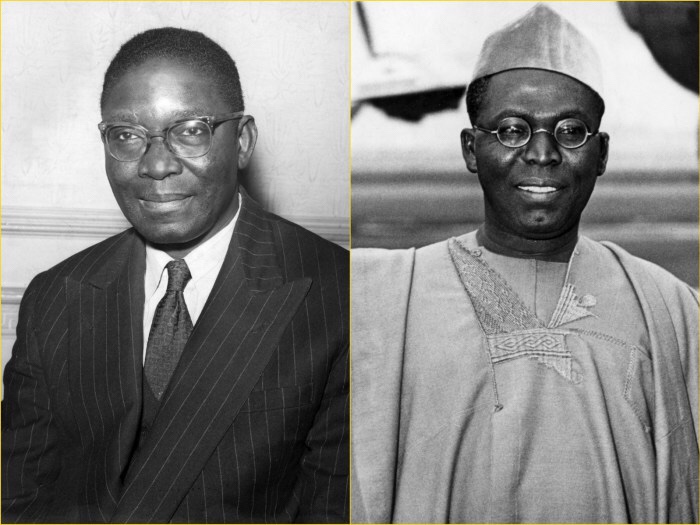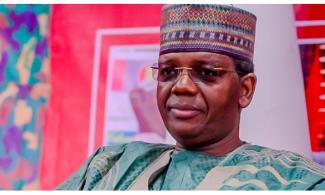Opinion
Igbo-Yoruba rivalry, bridging the harmony route

On a hot afternoon in Lagos, Alaba International Market buzzes like a living organism. Igbo traders call out prices for electronics in quick Igbo-English pidgin, while Yoruba shopkeepers argue with them in Yoruba-laced banter. Bargaining is intense, voices are loud, but behind the noise lies a rhythm of trust: credit extended across ethnic lines, partnerships formed in cramped offices, apprenticeships that cut across ancestral origins.
At one stall, Chijioke, an Igbo importer, laughs as his neighbour, Bamidele, a Yoruba distributor, jokingly accuses him of being “too sharp.” Chijioke fires back, “And you Yoruba, you like to calculate everything!” Both men laugh. The stereotypes are alive, but in this moment, they are softened into jokes, not weapons. They know their livelihoods depend on each other.
Scenes like this unfold every day. They tell us something Nigerians too often forget or ignore: that despite the headlines of rivalry, Igbo and Yoruba people live side by side, trade together, marry into each other’s families, and share in joys and struggles more than politics admits.
Long before Nigeria was stitched together by colonial borders, the Igbo and Yoruba were not strangers. Their worlds overlapped in markets, trade routes and ideas. Yoruba towns like Ibadan and Oyo were bustling centres of commerce that welcomed palm oil, textiles, and crafts from Igboland. In turn, Yoruba cloth and kola nuts travelled eastward.
By the late 19th and early 20th centuries, mission schools in Abeokuta, Onitsha and Lagos produced young Igbo and Yoruba intellectuals who would later sit in the same halls at the University of Ibadan, Nsukka, or abroad. They debated colonialism, nationalism, and what a free Nigeria should look like. In those classrooms and dormitories, friendships and romances blossomed.
Even families crossed boundaries. A Yoruba teacher might take a posting in Enugu and return with an Igbo bride. An Igbo trader might marry into a Yoruba family in Lagos. These small stories never made the history books, but they made Nigeria what it is.
So, how did closeness give way to suspicion?
The seeds were sown during colonial times, when Nigeria was divided into regions: the East (largely Igbo), the West (largely Yoruba), and the North. Politics soon became a competition of “our region versus theirs.” Leaders who might have forged unity, Zik in the East, Awolowo in the West, found themselves painted as rivals for national leadership.
The 1960s brought darker days. Coups, counter-coups, and, finally, the civil war turned suspicion into bloodshed. Though the war pitted the Nigerian Federal Government against Biafra, Yoruba-Igbo relations were not spared. Stories of betrayal spread, sometimes exaggerated, sometimes invented, but powerful enough to poison trust.
After the war, many Igbo rebuilt their lives in Yoruba cities. Their success, especially in Lagos markets, was impressive, but sometimes resented. Periodic clashes over land, politics, and resources reinforced the narrative that the two groups were destined to compete, not cooperate.
Ask an Igbo in Lagos, and you may hear: “No matter how long we live here, we are still called strangers.” Ask a Yoruba landlord in the same city, and he might say: “The Igbos come, buy everything, and act like they own the place.”
Both grievances are valid in their own way. The Igbo feel excluded and stereotyped despite contributing immensely to urban life. The Yoruba worry about losing control of ancestral spaces. Behind the words lies the same yearning: a desire for dignity, recognition and belonging.
Yet, beyond the noise of grievance, countless quiet stories show cooperation at work.
In the 1980s, it was reported that a Yoruba landlord in Mushin gave his struggling Igbo tenant a second shop for free, saying, “If you succeed, we all succeed.” That tenant is now a wealthy importer who still cares for the landlord’s children.
In Enugu, a Yoruba nurse fell in love with her Igbo patient. Their wedding brought together drummers from both cultures. Today, their children move between Owerri and Ibadan with ease, speaking both languages.
In the markets of Idumota and Balogun, Igbo apprentices learn the ropes from Yoruba traders, while Yoruba businessmen depend on Igbo importers for goods. Profit, it seems, does not recognise ethnic boundaries.
This is the Nigeria that newspapers rarely write about, but in which millions of ordinary people live daily.
The case for harmony is not just moral, it is existential.
The Igbo gift for enterprise and the Yoruba flair for organisation and education are complementary strengths. Together, they can become an engine for national growth.
Culturally, Igbo republicanism and Yoruba kingship systems enrich Nigeria’s plural identity. Both value ancestry, festivals and community.
Politically, if they remain divided, Nigeria will stay unstable. If they unite, they can anchor national democracy and development.
Generationally, today’s youth deserve more than inherited bitterness. They deserve a chance to shape their own story, free of the ghosts of the 1960s.
The work of reconciliation cannot be left to chance. It requires deliberate action: Elders must lead community forums where the past can be acknowledged openly, without fear or blame. Joint Igbo-Yoruba ventures, from tech hubs in Lagos to manufacturing in Aba, can turn profit into partnership.
Schools must tell stories of cooperation alongside the civil war, so that children inherit hope, not hate. Politicians and traditional rulers should model unity by sharing platforms, celebrating intermarriage, and rejecting ethnic scapegoating.
Music, film and literature should spotlight Igbo, Yoruba love stories, friendships and shared victories, reshaping public imagination.
It is time for both ethnic groups to become discerning. It is time to do away with ethnic bigotry and pernicious politicking that sets brothers against brothers. These smart crooks in political moulds pit the people against themselves to distract them from noticing and asking questions about the brigandage and plundering of the commonwealth. Both the Igbo and the Yoruba suffer equally from the debilitating hardship foisted on the people by politicians and their slavish foot soldiers.
Nigeria cannot afford for its two great southern peoples to see each other as enemies. The Igbo and Yoruba are not destined for rivalry; they are destined for partnership. The evidence lies not in textbooks but in daily life: in the markets of Lagos, in mixed families in Enugu, in classrooms in Ibadan.
To live apart is to weaken Nigeria; to live together is to enrich it. Both groups owe it to their ancestors, who struggled for dignity, and to their children, who deserve peace, to choose harmony over rivalry.
The divide is not destiny. It is a story, and stories can be rewritten. The Igbo and Yoruba can, and must, tell a new story: one of respect, cooperation, and shared future. To live apart is to weaken Nigeria. For in their unity lies the strength of Nigeria itself.
The ancestors traded together, the present generation already lives side by side, and the future will demand even more cooperation.
The task is simple but profound: to choose harmony over suspicion, cooperation over competition, love over fear. For in the unity of Igbo and Yoruba lies not just Nigeria’s stability, but its greatness.
The generation that did not experience the civil war must be given tools to rewrite the script of their forebears. Town-hall styled forums can allow memories of war, migration, and discrimination to be aired, with the goal not of revenge but of acknowledgment and healing. Laws against ethnic discrimination and enforceable protections in employment, housing, and commerce will assure everyone that he is safe, wherever they live.
It will not be a bad idea to have youth and education exchange programmes whereby students from southeastern and southwestern schools are swapped. This will sow seeds of better understanding, new friendships, and slowly undo inherited bias.
The Igbo and Yoruba peoples are not condemned to live in tension. Their history is not only one of rivalry but also of cooperation, closeness, and shared struggle. The divide is real, but it is neither eternal nor unbridgeable. To live together in harmony is not just a moral choice; it is a survival strategy for Nigeria.
When the industrious Igbo spirit connects with the visionary Yoruba mind, the result is not just progress but a renewed national identity. Both groups must recognise that their destinies are bound together.
Unity is not a dream; it is an unfinished task. And the work must begin now.
•Written By Tony Iwuoma
-

 Business23 hours ago
Business23 hours agoSoft drinks tax hike harmful to economy – CPPE
-

 News22 hours ago
News22 hours ago“He’ll embarrass Nigeria on world stage” — U.S. activist asks Senate to reject Reno Omokri’s ambassadorial nomination
-

 News23 hours ago
News23 hours agoRivers Assembly attacks Fubara over infrastructure collapse, N600bn savings
-

 Politics23 hours ago
Politics23 hours agoOsun Governor, Adeleke Resigns from PDP
-

 News23 hours ago
News23 hours agoBadaru resigns as defence minister, cites health reasons
-

 News23 hours ago
News23 hours agoEx-Defence Chief Christopher Musa Set To Replace Badaru Abubakar As Nigeria’s Defence Minister
-

 Business23 hours ago
Business23 hours agoNigeria should not be importing fuel, we have capacity to meet local demand — Dangote
-

 News22 hours ago
News22 hours agoPressure Mounts On Tinubu To Sack Matawalle As U.S. Insists On Defence Ministers’ Removal Before Security Collaboration


















